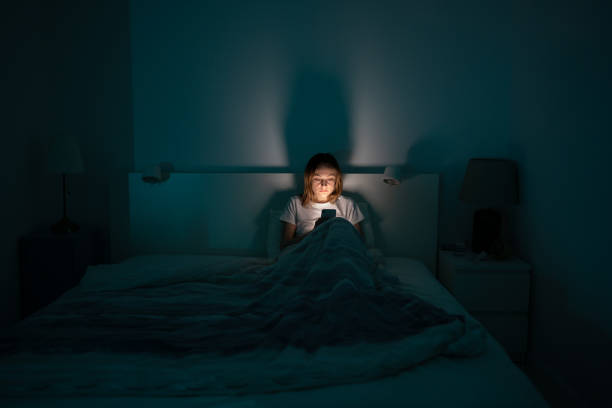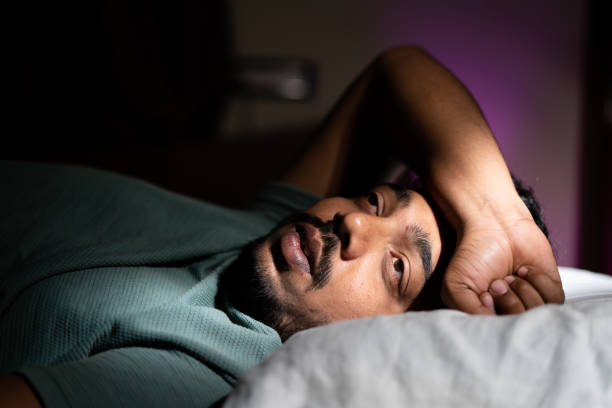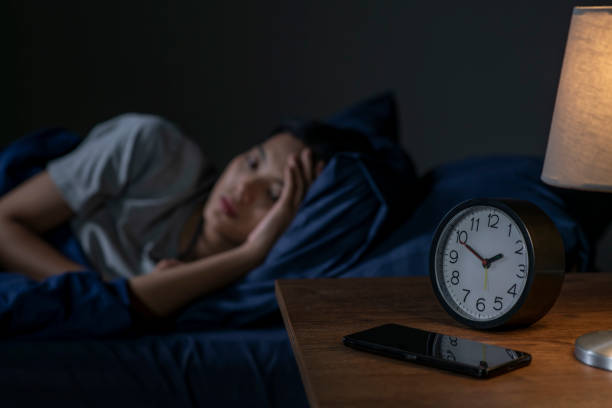Sleepless in the Digital Age? How Technology is Disrupting Our Sleep Patterns and How to Fight Back
 In the age of constant connection, our relationship with sleep has become increasingly strained. The glow of our smartphones beckons us long after the sun has set, social media feeds scroll endlessly, and late-night work emails demand immediate attention. This digital dependency comes at a cost: disrupted sleep patterns and a growing epidemic of sleep deprivation. But why exactly is technology wreaking havoc on our slumber, and what can we do to reclaim our nights and restore a healthy sleep cycle?
In the age of constant connection, our relationship with sleep has become increasingly strained. The glow of our smartphones beckons us long after the sun has set, social media feeds scroll endlessly, and late-night work emails demand immediate attention. This digital dependency comes at a cost: disrupted sleep patterns and a growing epidemic of sleep deprivation. But why exactly is technology wreaking havoc on our slumber, and what can we do to reclaim our nights and restore a healthy sleep cycle?
The Digital Culprits: How Technology Disrupts Sleep
Our bodies rely on a natural internal clock known as the circadian rhythm. This 24-hour cycle regulates various physiological processes, including sleep and wakefulness. Light exposure plays a crucial role in setting our circadian rhythm. When sunlight hits our eyes, it suppresses the production of melatonin, a hormone that signals sleepiness. Conversely, darkness triggers melatonin production, preparing our bodies for rest.
Here's where technology throws a wrench into the delicate balance:
- Blue Light Emission: Our beloved electronic devices – smartphones, tablets, laptops, and even some TVs – emit blue light, a specific wavelength that mimics sunlight. Exposure to blue light in the evening suppresses melatonin production, making it harder to fall asleep and achieve deep, restorative sleep.
- Mental Stimulation: Scrolling through social media, checking emails, or playing video games before bed keeps our minds active and alert. This mental stimulation makes it difficult to wind down and transition into a relaxed state conducive to sleep.
- Disrupted Sleep Schedules: The flexibility of the digital world often translates to erratic sleep schedules. We might stay up late catching up on shows, working late into the night, or simply succumb to the allure of one "more episode." This inconsistency throws our circadian rhythm off kilter, leading to difficulty falling asleep and waking up feeling unrested.
- Anxiety and Stress: The constant connectivity and information overload of the digital world can be a significant source of anxiety and stress. These emotions have a well-documented negative impact on sleep quality, making it harder to fall asleep and stay asleep throughout the night.
The Consequences of Sleep Deprivation:
The impact of sleep disruption goes far beyond grogginess in the morning. Chronic sleep deprivation can have a significant impact on our physical and mental health, leading to:
- Decreased cognitive function: Difficulty concentrating, impaired memory, and reduced reaction time.
- Increased risk of chronic diseases: Sleep deprivation is linked to an increased risk of heart disease, stroke, diabetes, and obesity.
- Weakened immune system: Sleep is crucial for our immune system to function properly, making us more susceptible to illness when sleep-deprived.
- Mood swings and irritability: Lack of sleep can exacerbate emotions, leading to increased irritability, anxiety, and even depression.
Fighting Back: Strategies for Restoring Healthy Sleep in a Digital World
While technology may be disrupting our sleep, it's not all doom and gloom. By implementing some practical strategies, we can reclaim control of our sleep hygiene and wake up feeling refreshed and energized.
- Embrace a Digital Sunset: Set a specific time before bed when you power down all electronic devices. This allows your body time to wind down and produce melatonin naturally. Consider using apps that filter blue light from your screen in the evening hours.
- Create a Relaxing Bedtime Routine: Establish a calming bedtime routine that signals to your body it's time to wind down. This could include taking a warm bath, reading a book, practicing light stretches, or meditation.
- Optimize Your Sleep Environment: Ensure your bedroom is dark, quiet, and cool. Invest in blackout curtains, earplugs, and a comfortable mattress and pillows.
- Get Regular Exercise: Physical activity can improve sleep quality, but avoid vigorous workouts close to bedtime as they can be stimulating. Aim for moderate exercise earlier in the day.
- Develop a Consistent Sleep Schedule: Go to bed and wake up at the same time each day, even on weekends. This consistency helps regulate your circadian rhythm and promotes better sleep quality.
- Limit Caffeine and Alcohol Intake: While caffeine can initially make you feel alert, it can interfere with sleep later in the night. Similarly, while alcohol might make you drowsy initially, it disrupts sleep cycles throughout the night.
- Manage Stress: Chronic stress can significantly impact sleep quality. Explore stress management techniques such as yoga, meditation, or deep breathing exercises to help you unwind before bed.
- Seek Professional Help: If you've tried these strategies and still struggle with sleep, consult a healthcare professional. They can rule out any underlying medical conditions that may be contributing to your sleep problems and recommend additional treatment options.
By employing these strategies and adopting a more mindful approach to technology use, we can reclaim control of our sleep and wake up feeling refreshed and ready to tackle the day. Remember, a good night's sleep is not a luxury in the digital age – it's a necessity for maintaining optimal health and well-being. So, power down your devices, dim the lights, and prioritize sleep. Your body and mind will thank you for it.
Bonus Tip: Embrace the Power of Sunlight:
While blue light from electronic devices disrupts sleep, natural sunlight has the opposite effect. Aim for at least 30 minutes of sunlight exposure during the day, ideally in the morning or afternoon. This helps regulate your circadian rhythm and promotes better sleep at night.
Building a Tech-Free Bedroom Oasis:
Consider creating a tech-free sanctuary in your bedroom. This means leaving your phone and other electronic devices outside the bedroom altogether. Invest in an alarm clock (the old-fashioned kind!) to avoid the temptation of late-night screen time. By creating a tech-free zone, you'll be setting yourself up for a more peaceful and sleep-conducive environment.
Remember:
Changing habits takes time and commitment. Don't get discouraged if you don't see immediate results. Be patient, stick with your new sleep routine, and gradually reduce your reliance on technology before bed. As you prioritize sleep and implement these strategies, you'll find yourself drifting off more easily, experiencing deeper sleep, and waking up feeling well-rested and ready to embrace each day. A good night's sleep is an investment in your overall health and well-being, and in a world fueled by constant connectivity, it's a rebellion worth fighting for. So, power down, dim the lights, and reclaim your right to a restful night's sleep.









































































